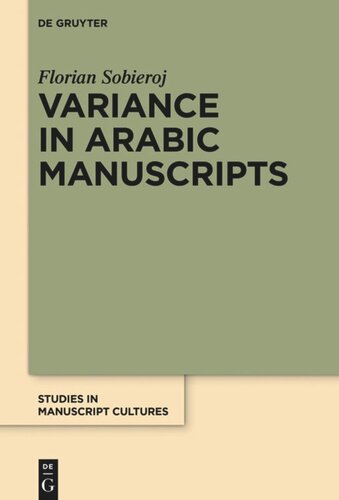

Most ebook files are in PDF format, so you can easily read them using various software such as Foxit Reader or directly on the Google Chrome browser.
Some ebook files are released by publishers in other formats such as .awz, .mobi, .epub, .fb2, etc. You may need to install specific software to read these formats on mobile/PC, such as Calibre.
Please read the tutorial at this link: https://ebookbell.com/faq
We offer FREE conversion to the popular formats you request; however, this may take some time. Therefore, right after payment, please email us, and we will try to provide the service as quickly as possible.
For some exceptional file formats or broken links (if any), please refrain from opening any disputes. Instead, email us first, and we will try to assist within a maximum of 6 hours.
EbookBell Team

4.1
20 reviewsIn Arabic and Islamic studies, the subject of variance in general and that of textual variation in particular has not been investigated exhaustively so far.
In the present book the variation in texts of the “closed transmission” will be studied, focusing on a small corpus of didactic and model poems, with a view to establishing what degree of text stability and change was allowed by the medium manuscript. Categories of variance (relating to work-titles, text, number of verses and their sequence, page-layout, context) and the means of controlling them in the manuscripts of the poems are identified and detailed descriptions of the copies are given.
The monograph also includes a presentation of some major traits of the cultural background to the study of Arabic didactic poetry and of its dissemination in which memorization has played a crucial role.
The intended readers,editors and other users of manuscripts, are helped to acquaint themselves with the methods employed in the manuscripts to control variation and they are given an overview of the large spectrum of Arabic didactic poetry and of its place in the traditional culture of learning in Islamicate societies.